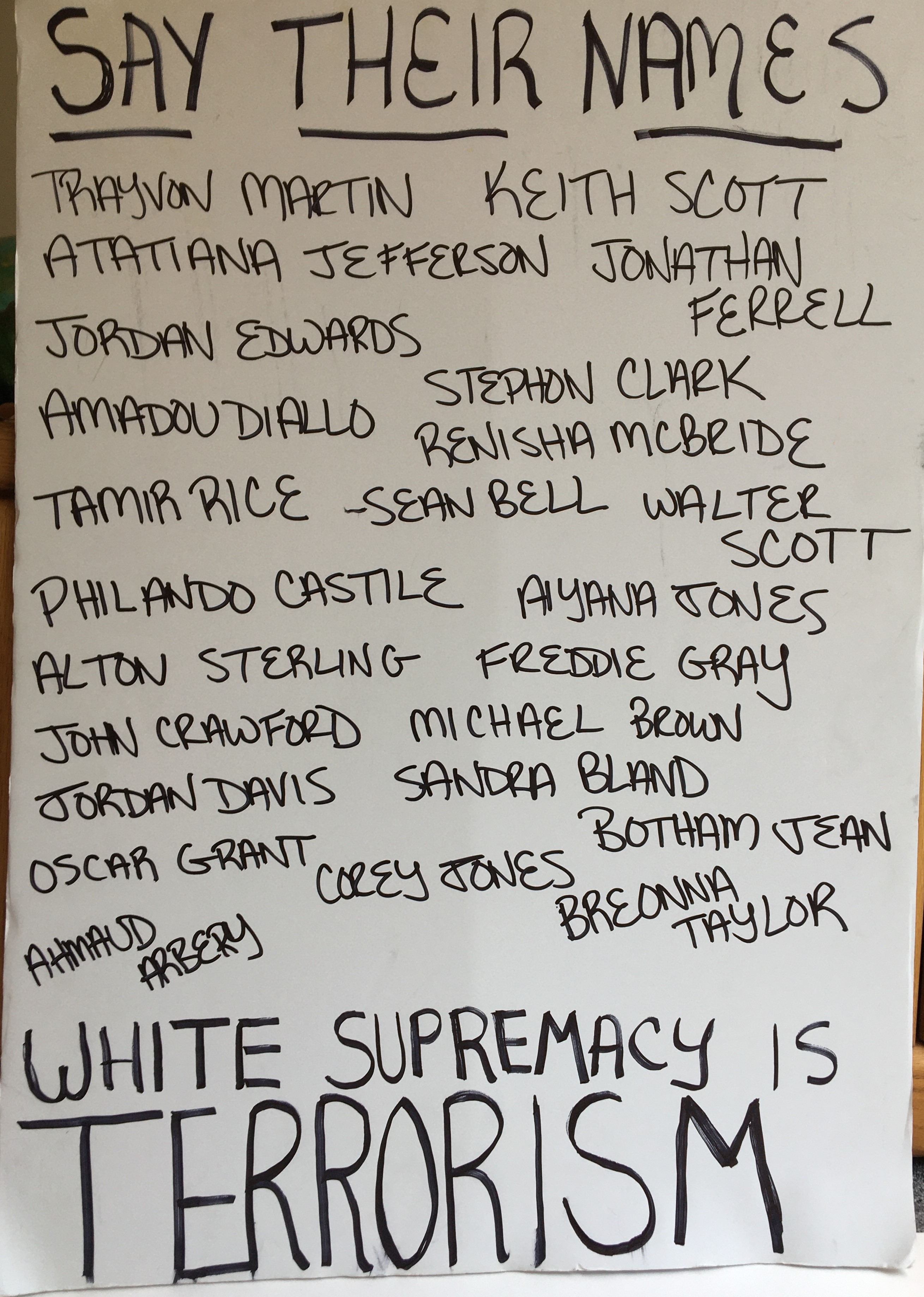
Story
American Studies 102: Survey of 21st Century US “Race” Relations with Professor Iqbal Penelope-Nkotto
A twenty-second-century American Studies professor looks back at the antiquated notion of “race” that prevailed in 2020, when high-profile incidents of anti-Blackness sparked the War of Reckoning and, ultimately, the Great Reconciliation.
Editor’s Note: How will 2020 go down in history? In the Hindsight 20/20 project from The Colorado Magazine, twenty of today's most insightful historians and thought leaders imagine themselves in 2120, looking back on 2020 and sharing their visions of how that year will stand the test of time.
Day 323 2120
Good morning, students. Today’s class focuses on the year 2020, which planted the seeds for the Wars of Reckoning and the Great Reconciliation. Please sign up for a 2020 site visit on the Back In Time platform before signing off today.
As you remember from our first lecture, the United States was comprised of people categorized into so-called “racial” groups, informally defined by phenotypical and cultural characteristics presumed to be associated with biological and other fundamental differences.
Although there’d been racial crisis points around systemic police violence against unarmed Black citizens throughout the late twentieth and early twenty-first centuries—the Rodney King beating in 1991, the Trayvon Martin murder in 2012, uprisings after Michael Brown’s killing two years later—the high-profile murders of Ahmaud Arbery, Breonna Taylor, and George Floyd presented a turning point in US anti-Blackness. Arbery was a 25-year-old on a jog through his mother’s neighborhood when he was pursued and shot dead by three white men—one of them a former police officer—who were initially exonerated. Twenty-six-year-old first responder Breonna Taylor was shot when police mistakenly raided her fiancé’s apartment in the night: the only charge against the perpetrators was for endangering neighbors. Then, as the country seemed to be emerging from the Phony First Wave of the Covid-19 pandemic, citizen external personal device video (digital devices were external and had to be periodically charged) captured a police officer choking to death 46-year-old George Floyd, who was unarmed, over more than eight minutes in front of shocked bystanders.

Black Lives Matter protests of 2020 helped to facilitate mainstream conversations about America's centuries-long history of systemic racism and police brutality.
Although murders of unarmed Black citizens were commonplace and rarely prosecuted, and convictions of officers statistically negligible, these murders caught the world’s attention.
The indifference to anti-Blackness had been the product of a history of racism—dehumanizing people and denying their fundamental rights because of their categorization—that had long tolerated casual terrorism against Black, Indigenous, and Latinx citizens. But the sight and continual replaying of video awakened the nation’s conscience. Americans had to decide what democracy should look like, and who could participate. These conversations came to a head with the Insurrection of January 6, when horrified Americans of all persuasions witnessed an assault on the heart of the democratic process and the different treatment accorded white rioters and the mostly peaceful demonstrators for social justice who’d taken to the streets the previous summer. It seemed that law enforcement treated citizens demonstrating for rights and citizenship as more threatening than a mob disrupting one of the most sacred rituals of US democracy.
So I’m sure you can see how the seeds were sown for the Wars of Reckoning, but also that the difficult conversations and sense of community that burgeoned in an era of debates pitting individual liberties against the government’s need to protect public health led quicky to the Great Reconciliation—a grassroots movement involving citizens from all walks of life whose values were later reflected in legislation and initiatives that shaped the world we know now.
Oh, dear, I’ve kept you past the hour. Don’t forget to sign up for the Back In Time field trips. Remember: Back In Time works on the Old Christian Calendar, so be sure to make the right conversions. See you in 2020!
More from the Hindsight 20/20 project in The Colorado Magazine
The Year of the Ethicist When the Covid-19 pandemic exposed public health shortcomings and deadly racial inequities, it sparked a new public conversation about our priorities. The hard days and difficult decisions of 2020 propelled new ways of thinking about the health and wellbeing of our whole society, including what a “right to health care” really means.
Saving the “Soul of the Nation” Since the day record numbers of Americans elected Joe Biden as their president, historians have been writing the record of the Trump Era and the fractures his presidency exposed—and how Americans charted a path forward.
Looking Backward: Lessons from a Pandemic If we take a backward glance at 2020 from the standpoint of 2120—never mind how we got here—what do we see? And what perspective have we gained in the century since? Colorado’s State Historian takes a moment to ponder some lessons learned.
